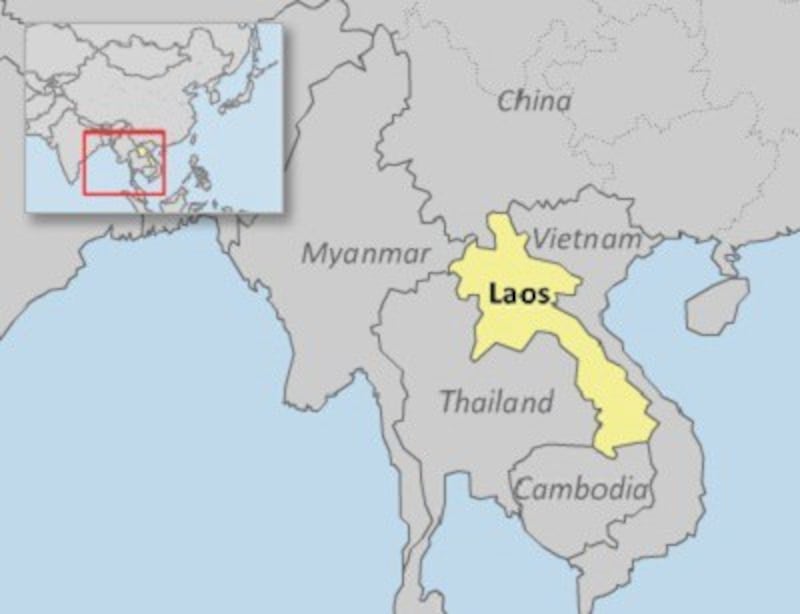Lao authorities have launched a pilot program in the capital Vientiane to regulate foreign workers in the country, who are taking thousands of low-skill jobs away from locals, according to officials.
As part of the project, the Ministry of Labor and Social Welfare is collecting data on foreign workers in the city and setting up a “one-stop service” where undocumented workers can go to sign up for permits, a senior official from the ministry told RFA’s Lao Service.
The official, speaking on condition of anonymity, did not say whether the documentation process was part of an amnesty for those working illegally, but local news reports did not rule out the prospects of deportation for some.
Efforts to regulate the city’s undocumented foreign workers—many of them from neighboring Vietnam, China, and Thailand—will be used to help develop similar programs in the rest of the country, he said.
There are an estimated 4,900 illegal workers in Vientiane, many of them engaged in menial labor or in the construction industry.
“Right now we don’t have a model that other provinces can follow. The capital Vientiane will be the test case, because it is central and administered by the Ministry of Home Affairs,” the official said.

Many Lao provinces, particularly those bordering China and Vietnam, face problems with foreigners entering the country on tourist visas and staying to work, he said.
Some foreign workers are brought by companies of their countries which have won bids to implement investment projects, but stay on illegally after their papers expire.
Amid a flood of investment that has helped fuel the Lao economy in recent years, Vietnamese, Chinese, and Thai companies have brought thousands of workers from their countries to Laos to build projects such as hydropower dams and work in mines, and agricultural plantations.
At the same time, every year thousands of Lao laborers flock across the border to work in factories in Thailand.
Taking jobs from locals
A labor and social welfare official from a province outside of Vientiane complained that foreign workers brought into Laos for investment projects are taking construction jobs away from Lao people.
“Companies illegally bring in migrant workers, and we are unable to control it,” he said, also speaking on condition of anonymity.
“It affects Lao construction workers because they give construction work to Vietnamese workers, and we can’t provide the labor.”
Companies say they prefer to hire workers from their home countries because they accept lower wages and can work harder than Lao workers, he said.
Lao labor laws require companies operating in the country to limit foreign employees to no more than 30 percent of the workforce, with only 10 percent unskilled foreign laborers.
However, companies may receive special permission from authorities to hire more foreigners, and many of them do, while others bring in more workers illegally, reports say.
Vientiane workers
In Vientiane, many of the undocumented foreign workers are working low-level jobs, the official who spoke on the labor situation in the capital said.
“Those without proper work status—many of them Vietnamese—are working at construction sites, at salons, and in restaurants,” he said.
The ministry is currently searching for a facility to set up the “one-stop service.”
The effort to reach out to the undocumented workers comes partly in response to complaints that some of them don’t get permits because the application process is too complicated and confusing, he said.
According to recent statistics from the ministry collected as part of the pilot program, the city has some 7,500 foreign workers, 4,900 of them undocumented.
More than 3,200 of them are from Vietnam, 2,500 from China, 600 from Thailand, and 1,000 from other countries.
In September, Minster of Labor and Social Welfare Onchanh Thammavong said Laos has some 20,000 foreign workers in the country in total, but needs to bring in bring in 70,000 more by next year to grapple with a shortage of skilled labor.
Workers in Laos need more training to equip them with the skills needed to keep pace with competition from the country's Southeast Asian neighbors, who are eyeing the formation of a single market in two years, she said.
Reported by RFA’s Lao Service. Written in English by Rachel Vandenbrink.
